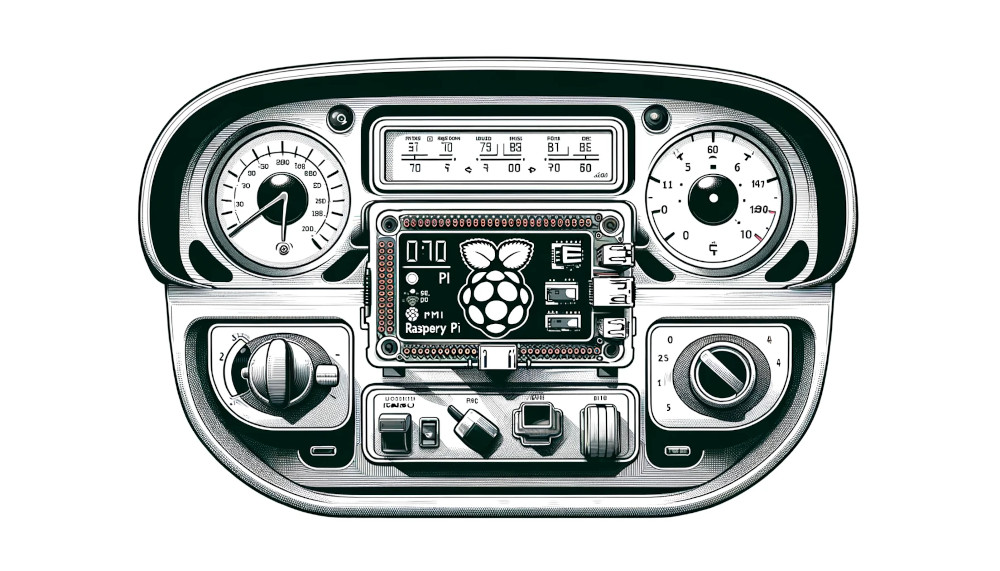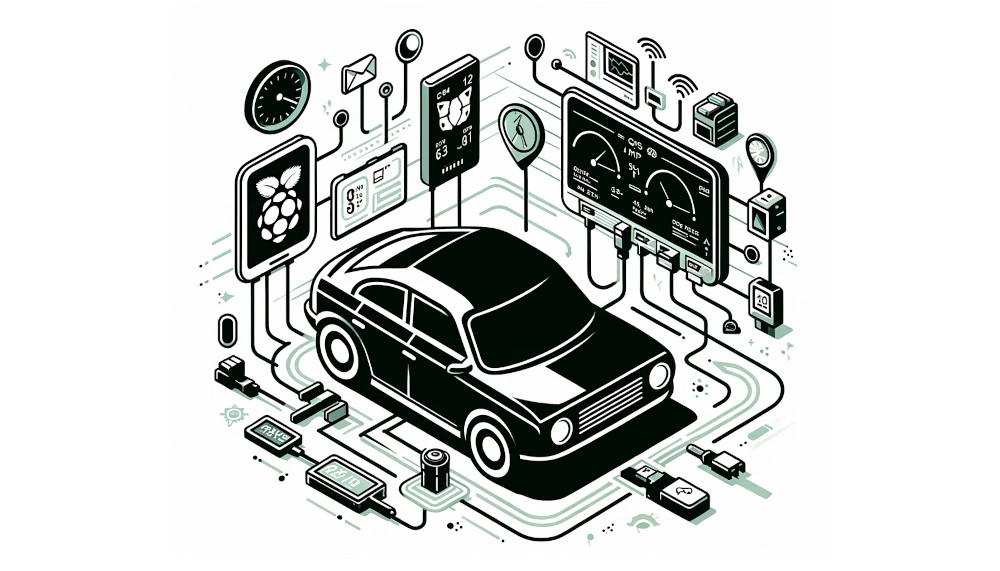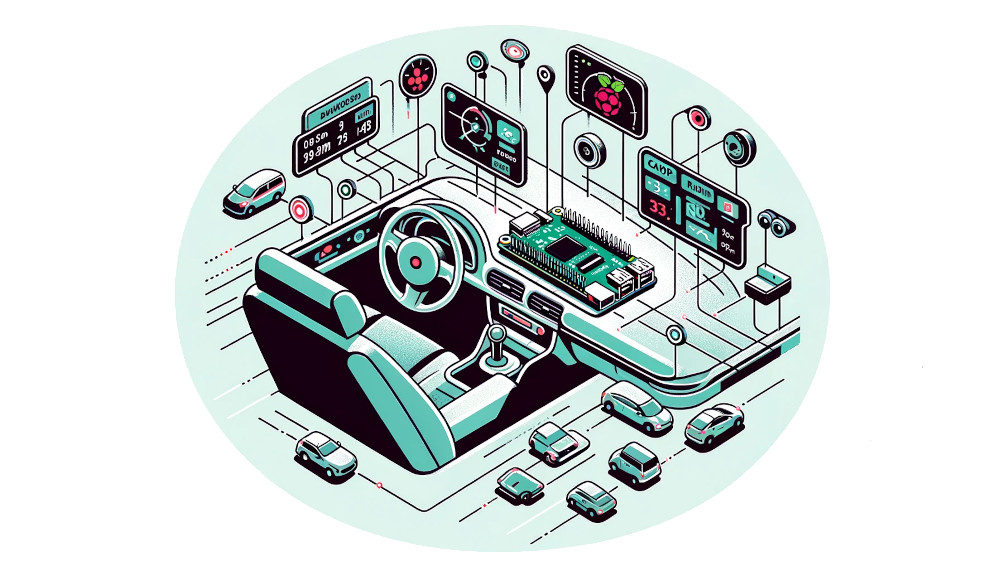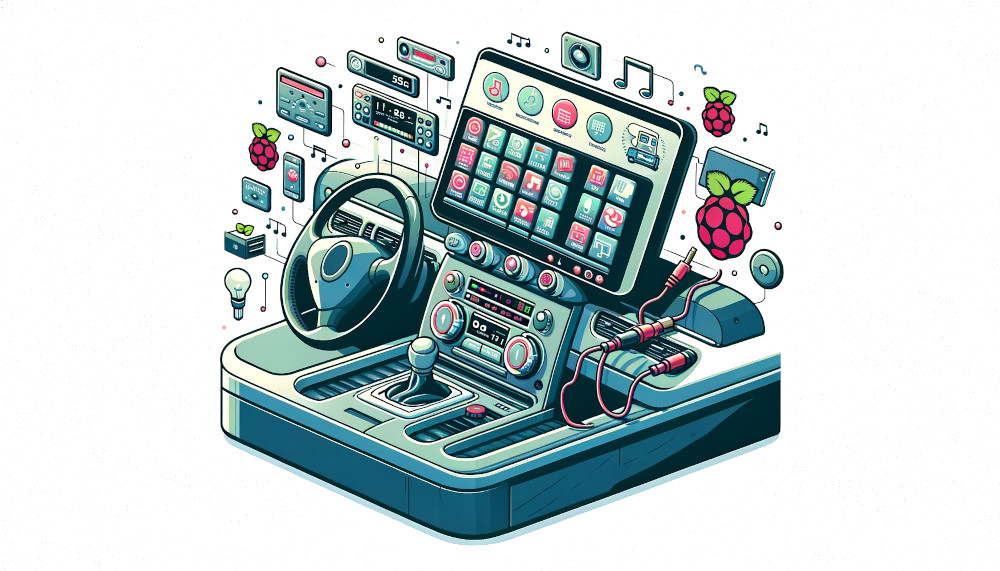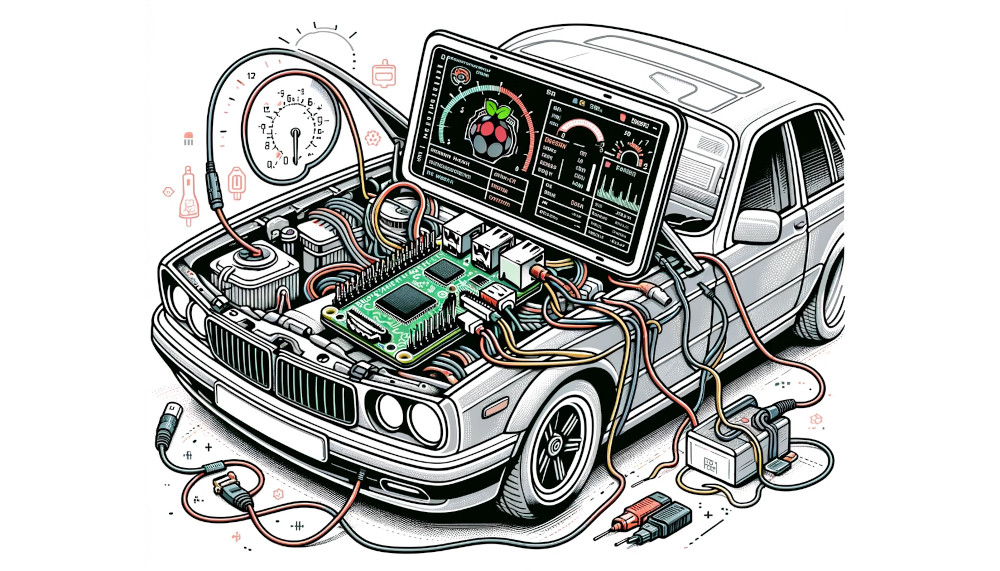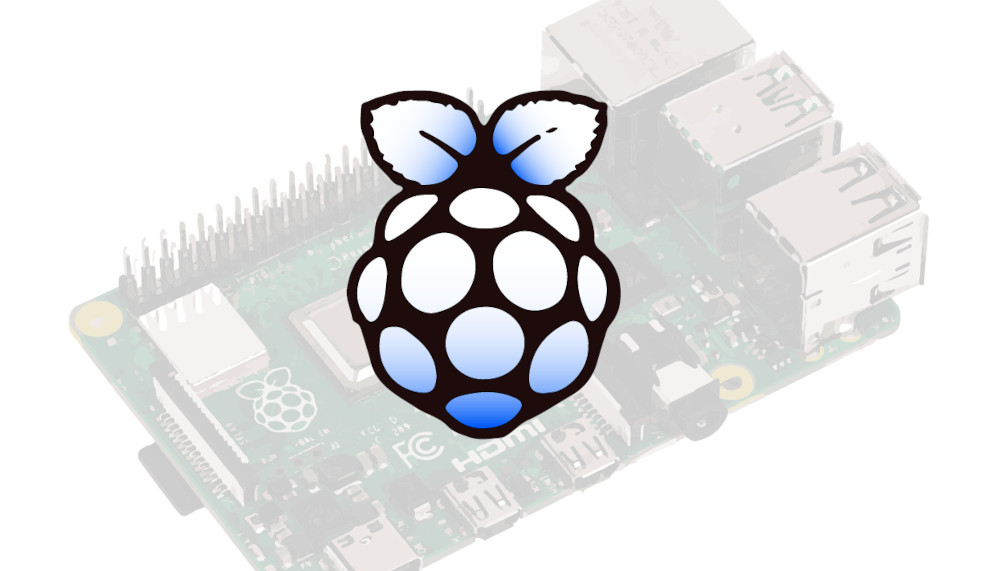Welcome to the fascinating realm of Raspberry Pi – a small device with enormous potential. This guide is dedicated to unveiling the myriad possibilities hidden within this compact yet powerful tool. Since its launch, Raspberry Pi has captivated the imagination of tech enthusiasts, hobbyists, and developers alike, becoming a staple in the world of modern computing and innovation. In fact, as of 2021, over 40 million Raspberry Pis have been sold worldwide, highlighting its widespread popularity and diverse applications.
In this journey, we'll explore the diverse and creative ways in which Raspberry Pi is being used across the globe. From simple, fun projects to complex, groundbreaking applications, the versatility of Raspberry Pi is boundless. Whether you're a seasoned developer or a curious newcomer, there's something in the world of Raspberry Pi for everyone.
Our exploration will cover key topics, including an overview of Raspberry Pi, its varied applications, some inspiring project examples, and a balanced look at its advantages and challenges. We will also provide insights into where to purchase a Raspberry Pi and highlight a unique use case by AutoPi with Raspberry Pis.
So, grab your curiosity and join us as we delve into the world of Raspberry Pi, where small size meets big innovation.
What is Raspberry Pi?
Raspberry Pi represents a revolution in miniature computing, redefining what we can achieve with a device that fits in the palm of your hand. At its core, Raspberry Pi is a series of small single-board computers developed in the United Kingdom by the Raspberry Pi Foundation in collaboration with Broadcom. The primary goal behind its creation was to promote the teaching of basic computer science in schools and in developing countries.
-
However, the appeal of Raspberry Pi quickly transcended educational purposes, capturing the attention of tech enthusiasts, hobbyists, and professional developers around the world. The Raspberry Pi boards are remarkably versatile, offering enough computing power to perform tasks that once required significantly larger and more expensive computers.
Each model of Raspberry Pi comes equipped with a central processing unit (CPU), graphics processing unit (GPU), memory, and a range of input/output options that allow for various external devices to be connected. These devices range from simple sensors and switches to complex robotic components and high-definition displays.
What truly sets Raspberry Pi apart is its accessibility and open-source nature. The Raspberry Pi runs on a variety of operating systems, the most popular being Raspberry Pi OS, formerly known as Raspbian. This Debian-based OS is designed specifically for the Raspberry Pi, though other compatible systems include Windows IoT Core, Linux distributions, and even versions of Android.
Moreover, the Raspberry Pi features General Purpose Input/Output (GPIO) pins that allow for physical connections to other hardware, enabling users to create interactive projects that extend beyond the digital realm. This combination of versatility, affordability, and ease of use makes Raspberry Pi an invaluable tool for anyone looking to explore the world of computing, electronics, and beyond.
What Can You Do With A Raspberry Pi?
While there's a universe of ideas for Raspberry Pi projects across the internet, in this guide, we're steering our focus towards Raspberry Pi applications in the realm of vehicles. From enhancing your driving experience to adding new functionalities to your car, Raspberry Pi opens up exciting possibilities in automotive technology.
Here are some notable ways to use Raspberry Pi in vehicles:
-
Raspberry Pi Car Computer:
![Raspberry Pi Car Computer Dashboard Raspberry Pi device integrated into a car's dashboard.]()
-
Raspberry Pi Dash Cam:
![Raspberry Pi Dash Cam Raspberry Pi attached to the windshield with a camera lens.]()
-
Vehicle Telematics and Monitoring:
![Raspberry Pi Vehicle Telematics Raspberry Pi integrated into a car's system, connected to various sensors and devices.]()
-
Automated Driving Assistance:
![Rasberry Pi Driving Assistance Raspberry Pi as a key component in an automated driving system.]()
-
Home Automation from Your Car:
![Raspberry Pi Home Automation Raspberry Pi integrated into a car's dashboard, featuring a user interface for controlling various home automation systems.]()
-
Raspberry Pi as an Entertainment Hub:
![Raspberry Pi Infotainment Raspberry Pi integrated into a car's dashboard, with a large display screen showing a user interface.]()
-
DIY Car Repair and Diagnostics:
![Raspberry Pi Car Diagnostics Raspberry Pi connected to a car's engine and electronic system]()
-
Remote Vehicle Control:
![Raspberry Pi Logo & Device Raspberry pi logo on top of a raspberry pi device]()
-
Custom Vehicle Alarms and Security Systems:
![Raspberry Pi Logo & Device Raspberry pi logo on top of a raspberry pi device]()
While these are just a few examples, they highlight the potential of Raspberry Pi in transforming and enhancing vehicular experiences. Whether you're a car enthusiast looking to upgrade your ride or a developer interested in automotive technology, Raspberry Pi offers a flexible and affordable platform to bring your automotive projects to life.
Where to Buy Raspberry Pi?
Official Raspberry Pi Website: The Raspberry Pi Foundation's official website is a primary source for purchasing Raspberry Pi products. They offer a range of Raspberry Pi models along with various accessories. It's an excellent choice to ensure you get an authentic product directly from the source. Visit Raspberry Pi Official Store.
Best Buy: This well-known electronics retailer stocks Raspberry Pi kits and accessories. Best Buy's selection includes various models of Raspberry Pi, and they often offer starter kits that come with essential components, making it a convenient option for beginners. Visit Best Buy.
Amazon: As one of the largest online marketplaces, Amazon offers a wide range of Raspberry Pi models and kits. The advantage of shopping on Amazon is the diversity of options and the possibility of finding competitive pricing. However, it's advisable to check for authenticity and opt for reputable sellers. Visit Amazon.
CanaKit: Specializing in Raspberry Pi kits, CanaKit is a popular choice for Raspberry Pi enthusiasts. They offer a variety of kits that include the Raspberry Pi along with essential accessories, ideal for both beginners and experienced users. Visit CanaKit.
Real-World Business Projects with Raspberry Pi
In the business world, Raspberry Pi has found its way into a multitude of applications, ranging from interactive customer service kiosks to complex industrial automation systems. Among these varied examples, one particularly innovative use case stands out: the AutoPi device and platform.
The AutoPi Device and Platform
At the heart of the AutoPi device is a Raspberry Pi, which forms the foundation of this versatile telematics unit. This ingenious integration of Raspberry Pi showcases its capability to handle complex, real-world tasks in a business environment.
The AutoPi device connects to the OBD-II (On-Board Diagnostics) port of a vehicle, allowing it to gather a wealth of data from the car’s internal network. This data is then processed and can be accessed through the AutoPi Cloud, an accompanying cloud-based platform. The AutoPi Cloud offers a user-friendly interface for data analysis, remote control, and configuration of the AutoPi device, making it accessible for various business applications.
Applications of AutoPi: Development, Research, Fleet Management, and Maintenance
The AutoPi platform serves two primary business purposes: vehicle development and research, and fleet management and maintenance.
For Development and Vehicle Research: Developers and researchers can harness the power of AutoPi for advanced vehicle diagnostics, prototyping new automotive technologies, and conducting detailed research on vehicle performance and metrics. This application is particularly valuable for automotive engineers and technology developers looking to innovate in the field of vehicular technology.
For Fleet Management and Maintenance: In the realm of fleet management, AutoPi serves as a powerful tool for monitoring vehicle health, managing maintenance schedules, and optimizing fleet operations. It provides real-time data on vehicle location, driving behavior, and vehicle status, which is crucial for businesses relying on a fleet of vehicles for their operations. This aspect of AutoPi is particularly beneficial for logistics companies, car rental services, and any business that requires efficient management of multiple vehicles.
In both use cases, AutoPi, built on the Raspberry Pi platform, exemplifies the adaptability and power of Raspberry Pi in addressing complex, real-world business challenges. It's a testament to how Raspberry Pi technology is not just limited to personal projects or educational purposes but has significant implications in the business and industrial sectors.
Raspberry Pi Pros and Cons
The Raspberry Pi, while a remarkably versatile and powerful device, comes with its own set of advantages and limitations. Understanding these can help developers and tech enthusiasts make informed decisions about their projects.
Here’s a balanced look at the pros and cons of Raspberry Pi:
Pros of Raspberry Pi
-
Affordability: One of the biggest advantages of Raspberry Pi is its cost-effectiveness. It offers significant computational power at a fraction of the price of standard desktops or laptops.
-
Flexibility and Versatility: Raspberry Pi supports various programming languages and can run multiple operating systems. Its GPIO pins allow for a multitude of electronic projects, making it incredibly versatile.
-
Strong Community Support: Raspberry Pi has a vast and active community. This means ample resources, tutorials, and forums are available for troubleshooting and project ideas.
-
Compact Size: Its small form factor makes it ideal for projects where space is a constraint. This feature is particularly advantageous in IoT projects and embedded systems.
-
Educational Value: Raspberry Pi is an excellent tool for education in computer science and electronics, providing a practical platform for learning coding and hardware interaction.
Cons of Raspberry Pi
-
Limited Processing Power: While powerful for its size, Raspberry Pi cannot match the processing capabilities of a full-fledged PC or server, which can be a limitation for resource-intensive tasks.
-
Peripheral Requirements: To use Raspberry Pi, additional peripherals like a monitor, keyboard, and mouse are often required, which may add to the overall cost and setup complexity.
-
Storage Limitations: Raspberry Pi typically relies on microSD cards for storage, which may not offer the same speed and reliability as traditional hard drives or SSDs.
-
Overheating Issues: Under continuous heavy load, Raspberry Pi can overheat, leading to performance throttling. Adequate cooling solutions are necessary for intensive applications.
-
Learning Curve: For beginners, there can be a steep learning curve, especially in understanding Linux-based systems and electronics.
While Raspberry Pi has its limitations, its benefits often outweigh the drawbacks, especially for specific applications like education, hobbyist projects, and prototyping. It's a tool that empowers innovation and creativity, albeit within certain technical boundaries.
Key Takeaway
As we conclude this comprehensive guide on Raspberry Pi, it’s clear that this tiny device packs a significant punch in the world of technology and innovation. Here are the key takeaways from our exploration:
-
Versatility and Accessibility: Raspberry Pi stands out for its versatility. It's not just a tool for learning and hobbyist projects but also a viable option for real-world business applications, including vehicle technology and fleet management with solutions like AutoPi.
-
Ideal for Education and Experimentation: The Raspberry Pi serves as an excellent educational tool for both beginners and seasoned developers. It offers hands-on experience in various programming languages and systems.
-
Community and Resources: One of the greatest strengths of Raspberry Pi is its robust community and wealth of resources. This support system is invaluable for troubleshooting, project inspiration, and learning.
-
Considerations for Use: While Raspberry Pi has numerous benefits, it’s important to be aware of its limitations, such as processing power and the need for additional peripherals. Understanding these can help in selecting the right Raspberry Pi model for your specific needs.
-
Purchase Options: Raspberry Pi is widely available through various channels like the official Raspberry Pi website, major electronics retailers like Best Buy, and specialized vendors like CanaKit. Choosing a reputable seller ensures authenticity and quality.
In essence, Raspberry Pi is more than just a computer; it's a gateway to endless possibilities in the world of digital creation and innovation. Whether you're delving into the Raspberry Pi universe for business, education, or personal projects, it offers a unique platform to learn, experiment, and develop.
The future of Raspberry Pi continues to evolve, promising even more exciting developments and applications in the years to come.


